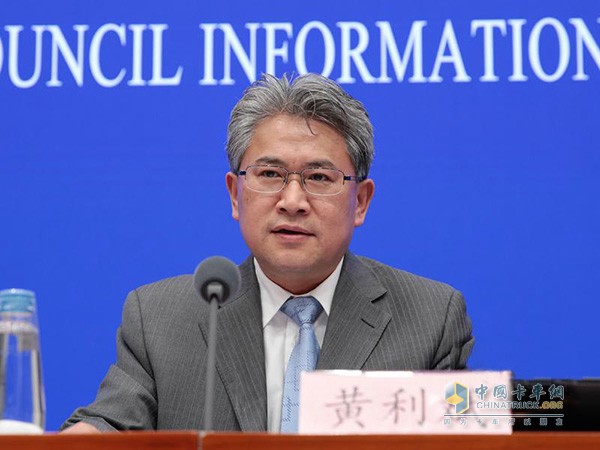 Huang Libin, spokesperson of the Ministry of Industry and Information Technology and Director of the Operation Monitoring and Coordination Bureau
Huang Libin, spokesperson of the Ministry of Industry and Information Technology and Director of the Operation Monitoring and Coordination Bureau
The public statement of the Ministry of Industry and Information Technology can be said to lay the foundation for the development of China's new energy automobile industry, that is, the development of pure electric vehicles and hydrogen fuel cell vehicles, and will coexist for a long time. Nowadays, the development of pure electric vehicles is fierce, and the hydrogen fuel cell vehicles that should be developed together have not made breakthroughs due to the problems of industrialization and commercialization. This change is bound to promote the development of the entire hydrogen fuel cell vehicle industry in China.
Huang Libin also said that hydrogen fuel cell vehicles and pure electric vehicles using lithium batteries are important technical routes for new energy vehicles. From the technical characteristics and development trends, pure electric vehicles are more suitable for urban, short-distance, passenger vehicles and other fields, and hydrogen fuel cell vehicles are more suitable for long-distance, large-scale, commercial vehicles and other fields.
From the current point of view, the industrialization process of hydrogen fuel cell vehicles is obviously later than pure electric vehicles. China's hydrogen fuel cell vehicles still have gaps with international advanced levels in terms of basic materials, key components, and system integration. The cost of complete vehicles is relatively high, and the construction of hydrogen energy infrastructure is relatively lagging behind. The development of hydrogen fuel cell vehicles is not only a technical issue, but also depends on the development of the overall hydrogen energy industry chain and the continuous optimization and improvement of relevant policies, standards and regulations. To some extent, the promotion of electric vehicles may be more difficult.
In the future, the Ministry of Industry and Information Technology will further increase its efforts, cooperate with relevant departments to carry out demonstration operations, crack down on the industrialization and commercialization of hydrogen fuel cell vehicles, and vigorously promote the innovative development of China's hydrogen energy and fuel cell vehicle industry.
In 2018, it was called the first year of hydrogen fuel. As early as 2016, the “Technology Roadmap for Energy Saving and New Energy Vehicles†formulated by the Ministry of Industry and Information Technology clearly stated that 100, 300, and 1000 hydrogenators will be built by 2020, 2025, and 2030, respectively. station. This year's government work report also mentioned for the first time that the task of hydrogenation construction has been raised to the national level. Subsequently, the Ministry of Finance, the Ministry of Industry and Information Technology, the Ministry of Science and Technology and the National Development and Reform Commission jointly issued the "Notice on Further Improving the Financial Subsidy Policy for the Promotion and Application of New Energy Vehicles", proposing that after the transition period, new energy vehicles will no longer be subsidized for purchase and will be converted to support. Charging (hydrogenation) infrastructure "short board" construction and supporting operation services. The statement of the Ministry of Industry and Information Technology now reflects that the policy is gradually being implemented.
According to the data of the China Automobile Association, in March 2019, the production and sales of fuel cell vehicles were completed 86 units, a 42-fold increase over the same period of the previous year. Throughout the first quarter, the production and sales of fuel cell vehicles were 278 and 273, respectively, an increase of 7.2 times and 135.5 times over the same period of the previous year. In 2018, fuel cell vehicles produced 1,527 vehicles, including 1,418 fuel cell buses and 109 fuel cell trucks. From this we can see that hydrogen fuel cell vehicles have already entered the commercial vehicle market. Under the policy guidance, the hydrogen fuel cell vehicle industry has made breakthroughs, and hydrogen energy vehicles will be closer to us.
Reading volume: Source: OFweek lithium Author: Cold autumnBlank type forklift forks, We can make any size you want, the material is 42 Crmo, thicker heel, our forks' capacity range from 0.5ton to 80ton. Quality assurance for one year, we have passed the ISO9000 and CE certification, please feel free to purchase.
Blank Type Forks,Blank Fork Arms,Blank Forklift Forks,Blank Type Pallet Fork
Shandong Techence Forging Co.,Ltd , https://www.sdtechenceforging.com